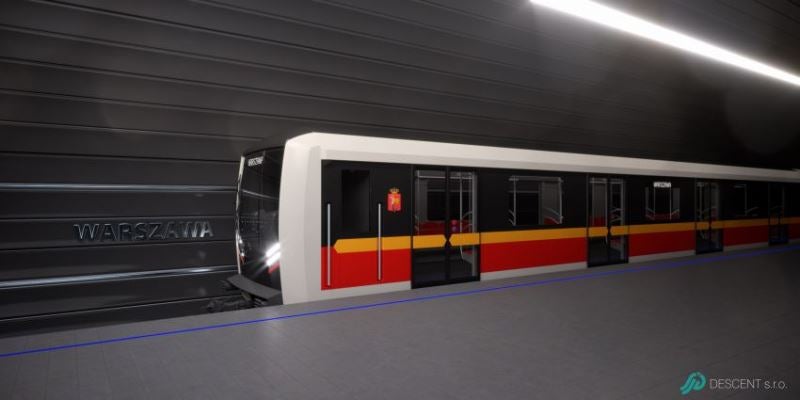
Škoda Transportation has signed a CZK8bn ($349.1m) contract to deliver 45 six-car metro trains for Warsaw, the capital city of Poland.
Other companies that competed for the contract include current fleet supplier, a Siemens-NEWAG consortium, as well as Stadler, Alstom and CAF.

Discover B2B Marketing That Performs
Combine business intelligence and editorial excellence to reach engaged professionals across 36 leading media platforms.
The company announced it won the contract on 10 October. The contract includes the delivery of the initial 37 trains, with an option for eight more.
Škoda will also supply the spare parts, a simulator, extended warranty, and training for the metro.
It said that it focused on the safety and comfort of passengers and operators during the development and design process.
The trains will comply with EN and UIC standards, as well as fire safety requirements.

US Tariffs are shifting - will you react or anticipate?
Don’t let policy changes catch you off guard. Stay proactive with real-time data and expert analysis.
By GlobalDataŠkoda said that the trains will offer safer operation with reduced operating costs.
It has partnered with universities and engineering offices in the Czech Republic and Poland to develop the metro trains.
Škoda Transportation sales senior vice president Zdeněk Majer said: “The new six-car trains for Warsaw can hold up to 1,500 passengers. Their maximum speed will be 90km/h. The interior is designed to create a pleasant environment for passengers.
“The materials used are resistant to normal wear and tear and are easy to clean. The vehicles will naturally meet the latest safety standards and will also be equipped with a camera system with recording.”
Škoda Transportation board chairman Petr Brzezina said: “In Warsaw, they can look forward to a sufficient number of comfortable seats and a modern, clear external and internal audiovisual information system, and both front cars will be equipped with space for disabled people, with a room for a stroller and a bicycle in each car.”
Last month, Russian investment company Sinara Group and Škoda Transportation agreed to form a joint venture (JV) to produce subway trains, trams and trolleybuses.



